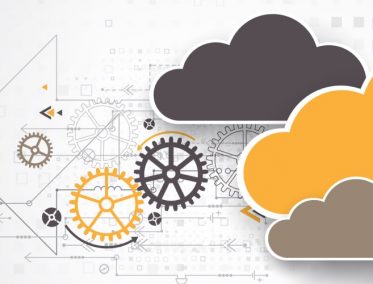Note: IT Convergence provides ERP system guidance and does not offer tax or legal advice. See full disclaimer below.
Brazil’s historic CBS/IBS tax reform marks a monumental shift in the country’s fiscal landscape. But while headlines focus on the promise of simplification and economic efficiency, the reality for businesses is far more complex—especially when it comes to Brazil ERP Readiness.
With the first wave of implementation set to begin in 2026, companies operating in Brazil must act now to modernize their ERP systems. Yet, many organizations continue to underestimate or delay this process, exposing themselves to a range of hidden risks that go far beyond tax penalties.
Let us understand why the time to act is not 2026, but today.
Key Dangers of Ignoring Brazil ERP Readiness for the New Tax System
1. Regulatory Non-Compliance: A Costly Gamble
With the introduction of CBS (federal VAT) and IBS (state and municipal VAT), Brazil’s taxation logic is shifting from an origin-based model to a destination-based model. This shift dramatically changes how taxes are calculated, applied, and reported within ERP systems.
Companies will be required to implement new tax determination rules, restructure invoice templates, and ensure real-time integration with government platforms for electronic invoicing and SPED (digital bookkeeping).
Failing to align your system with these mandates could mean your company is falling behind on Brazil ERP Readiness, resulting in:
- Blocked shipments, as electronic invoices (NFe/NFS-e) that don’t meet new compliance criteria, will be rejected in real time by government portals.
- Loss of input tax credits if taxes are misclassified or declared too early or too late in the process.
- Hefty penalties due to delayed, inaccurate, or non-compliant SPED submissions.
In a real-time compliance environment, even small ERP misconfigurations can create significant financial and operational consequences.
2. Revenue Disruptions from Split Payments and Tax Settlement Delays
The CBS/IBS framework introduces a split payment model, where part of the invoice payment is automatically routed to tax authorities. If your ERP cannot automate this, your organization is compromising Brazil ERP Readiness and risking:
If your ERP environment cannot:
- Automatically apply split payment rules at the invoice or line-item level,
- Reconcile payments with government receipts to validate tax settlement
- Track credit eligibility only after tax confirmation, rather than at invoice issuance
You’re likely to encounter cash flow blind spots, payment mismatches, and accounting inaccuracies that could stall financial operations. These disruptions become even more pronounced for companies operating multiple business units (CNPJs) or cross-regional supply chains within Brazil.
3. Loss of Audit Readiness and Legal Entity Integrity
CBS/IBS significantly raises the bar for audit and compliance at the CNPJ (legal entity) level. Most legacy ERP systems—especially those not originally built for Brazil’s ERP readiness—often treat business units and operating sites as loosely related entities. This leads to data leakage, incorrect tax posting, and flawed audit trails.
Without precise CNPJ-level controls, companies risk:
- Regulatory penalties for misaligned invoices, reporting gaps, or improper tax sequences during SPED submissions.
- Audit failures, when compliance cannot be demonstrated for individual entities due to cross-contamination of data.
- Costly cleanup efforts, including manual reconciliation and data re-segregation across multiple fiscal years.
ERP platforms must be configured to treat every CNPJ as a distinct fiscal identity, complete with its own tax logic, audit trail, and reporting obligations.
4. Lagging Behind Oracle’s Update Cadence
Oracle has outlined that CBS/IBS compliance features will only be available for supported versions of Oracle EBS and Oracle Cloud ERP. This includes enhancements for split payments, new VAT codes, real-time integration hooks, and updated localization templates.
Companies that delay upgrades jeopardize their Brazil ERP Readiness by:
- Missing critical patches
- Losing integration support
- Stalling modernization efforts
Delaying upgrades or failing to opt in to these updates will:
- Exclude your system from Oracle’s compliance roadmap,
- Limit your ability to integrate with local tax platforms,
- Stall modernization initiatives, putting broader ERP transformation goals at risk.
Proactive ERP version management is essential—not just for compliance, but for future-proofing your system investments.
Compliance in Brazil is integration-intensive. From tax calculation engines (e.g., Synchro, Mastersaf) to invoice gateways and SPED reporting tools, companies must ensure their ERP systems can exchange data in real time using certified, government-approved channels.
Without robust real-time integrations, your Brazil ERP Readiness is incomplete, and you can expect:
- Transaction failures due to delayed or rejected data exchanges.
- Longer processing times, increasing operational overhead.
- Manual workarounds are not only inefficient but also more prone to human error and audit risk.
Integrations must be automated, secure, and bi-directional, leveraging APIs and real-time web services, not outdated batch jobs or manual uploads.
6. Inability to Support Transitional Tax Periods (2026–2033)
The CBS/IBS reform will roll out in multiple phases between 2026 and 2033. During this time, companies will need to simultaneously manage legacy taxes (PIS, Cofins, ICMS, ISS) and the new CBS/IBS structure.
ERP systems must be capable of:
- Toggling between tax regimes by transaction date, product category, or service type.
- Maintaining dual ledgers or parallel reporting for transitional compliance.
- Reporting tax data under both old and new rules during overlapping phases.
Systems that lack this temporal and functional flexibility may require extensive customization, increasing the risk of errors, delays, and regulatory misalignment. Worse, relying too heavily on manual or external solutions can create bottlenecks that undermine system performance and audit traceability.
ERP Modernization Is Not Optional—It’s Foundational
The 2026 CBS/IBS rollout is not just a tax change. It’s a complete shift in how your ERP system handles fiscal compliance, cash flow, reporting, and integration. Ignoring it—or treating it as a last-minute IT patch—opens your organization up to serious financial, operational, and regulatory risks.
Now is the time to:
- Upgrade your ERP to a CBS/IBS-ready version
- Re-architect your system to support multi-CNPJ logic and real-time compliance
- Align with Oracle and certified tax partners to ensure seamless transition
- Build a roadmap for continuous compliance through 2033 and beyond
Delaying action only increases cost, complexity, and compliance risk. Brazil ERP Readiness isn’t just about being ready for 2026—it’s about ensuring operational resilience for the next decade.
ERP modernization is not optional—it’s foundational to achieving Brazil ERP Readiness in the face of CBS/IBS reform.
Get the full picture in our eBook, and explore a proactive roadmap for compliance, from Oracle version alignment to audit-proof tax architecture.

Disclaimer:
The information presented in this blog is for educational and informational purposes only. IT Convergence is a technology and ERP systems advisory firm. While we closely monitor Brazil’s tax reform (CBS/IBS) and help organizations prepare their Oracle environments accordingly, we do not provide tax or legal advice, nor do we interpret tax legislation.
This content reflects our understanding of system-level impacts based on publicly available resources and collaboration with Oracle and trusted tax partners.
We recommend all organizations consult with qualified tax or legal advisors to assess their specific obligations under CBS/IBS based on industry, entity classification, and jurisdiction.
IT Convergence supports Oracle ERP customers in configuring, optimizing, and future-proofing their systems for compliance, but does not assume responsibility for legal or fiscal determinations.




